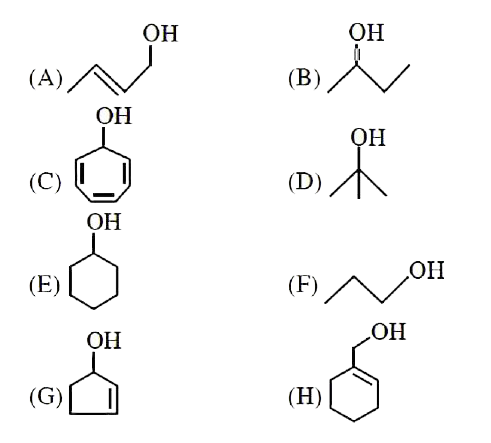At room temperature tertiary alcohols form white turbidity very fast with Lucas reagent while primary alcohols do not. Give reason.
Video Solution
Text Solution
A carbocation intermediate is formed when HCl(g) reacts with an alcohol in the presence of anhydrous ZnCl2 (dehydrating agent). Since tertiary carbocation is very stable while primary carbocation is rather unstable therefore, tertiary alcohols react very fast with Lucas reagent to form white turbidity immediately while the primary alcohols do not react at room temperature.
R−..O..−HAlcohol+H−Cl→R−⊕O∣H−HProtonatedAlcoholSlow−−→R+Cl−−−−−−→FastCarbocationR−ClAlkyl chloride
|
Topper's Solved these Questions
- ALCOHOLS AND PHENOLSBOOK - DINESH PUBLICATIONCHAPTER - ALCOHOLS AND PHENOLSEXERCISE - QUESTION FROM BOARD EXAMINATION
77 Videos
- ALCOHOLS AND PHENOLSBOOK - DINESH PUBLICATIONCHAPTER - ALCOHOLS AND PHENOLSEXERCISE - HIGHER ORDER THINKING SKILLS
8 Videos
- ALCOHOLS AND PHENOLSBOOK - DINESH PUBLICATIONCHAPTER - ALCOHOLS AND PHENOLSEXERCISE - NCERT Exercise
23 Videos
- ALDEHYDES AND KETONES BOOK - DINESH PUBLICATIONCHAPTER - ALDEHYDES AND KETONES EXERCISE - Interger
5 Videos
Similar Questions
Knowledge Check
Which alcohol gives instant turbidity with Lucas regent :
ACH3−CH2−OHBCH3−C∣OHH−CH3CCH3−CH3∣C∣OH−CH3DCH3−CH2−CH2−OHAlcohols which can give white turbidity immediately on reaction with Lucas reagent are :
A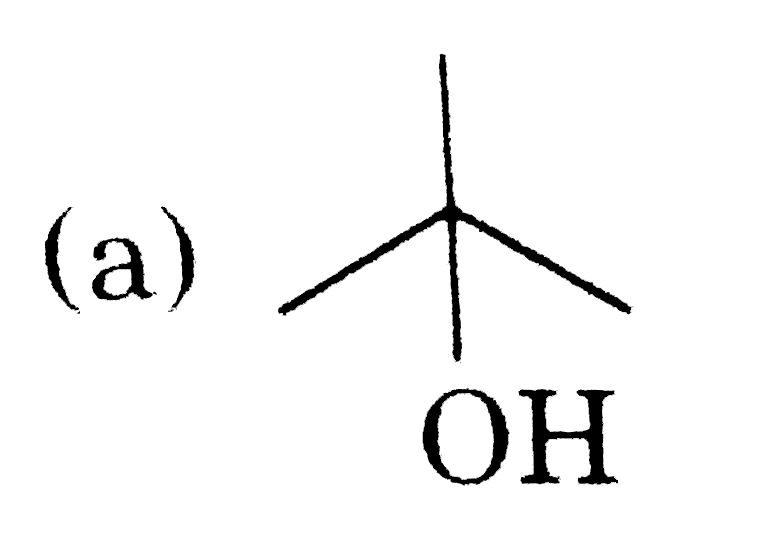 BPh3C−OHCH3C−OHDH3C−CH3∣C∣H−OH
BPh3C−OHCH3C−OHDH3C−CH3∣C∣H−OHWhich compound will not give white turbidity, immediately on reaction with Lucas reagent ?
A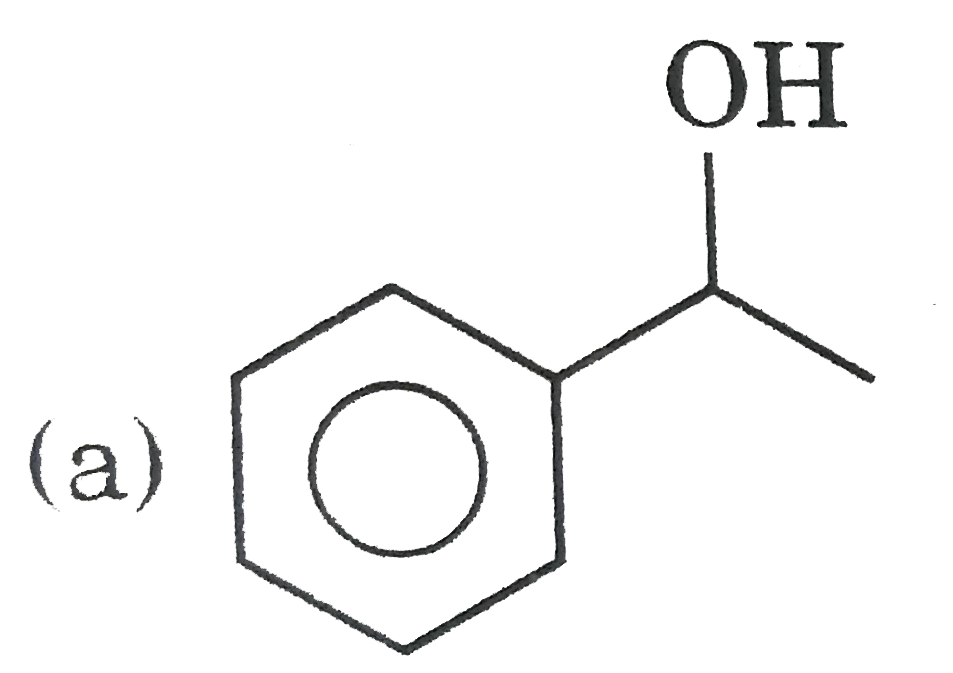 B
B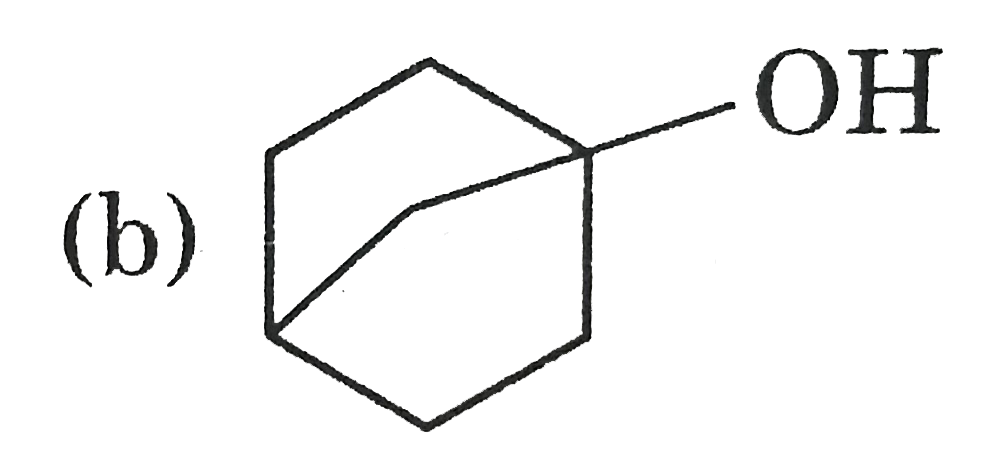 C
C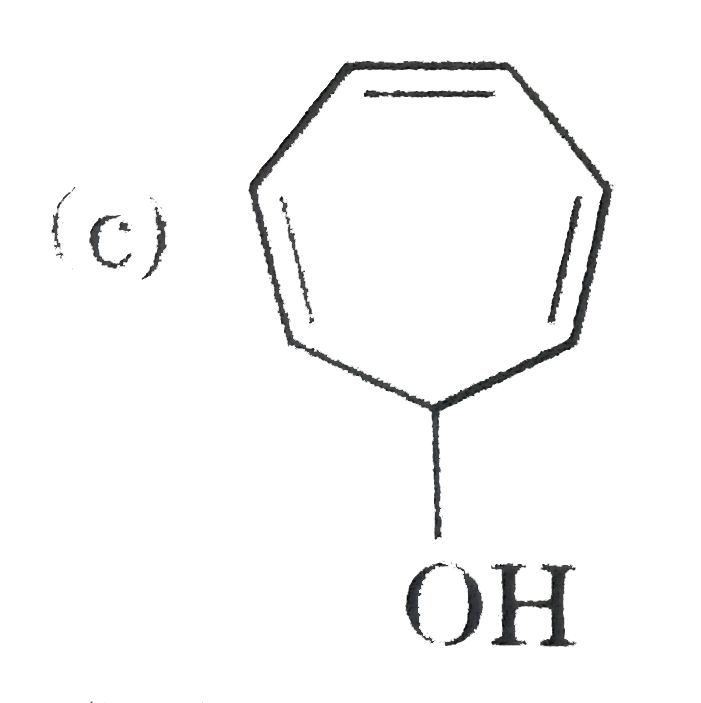 DH3C−CH3∣C∣OH−CH3
DH3C−CH3∣C∣OH−CH3
How many structurally isomeric pentyl alcohols will give immediate turbidity with lucas reagent ?
View SolutionThe compound which gives turbidity immediately with Lucas reagent at room temperature is
View SolutionHow many alcohols give immediate turbidity with Lucas reagent having molecular formula (C5H12O)
View SolutionWhich of the following gives a tertiary alcohol when treated with Grignard reagent ?
View SolutionHow many alcohols give immediate turbidity with Lucas reagent having molecular formula (C5H12O) :
View Solution

